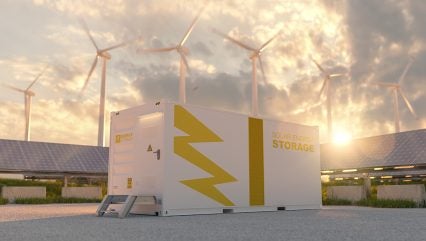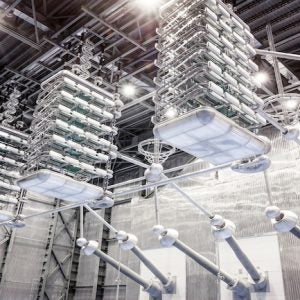
A radical approach is required from government to drive the major infrastructure and system transformation needed to decarbonise the GB electricity system and provide clean power by 2030, according to a new report from the National Engineering Policy Centre (NEPC). This includes recommendations for delivering the required grid, generation and system flexibility under an accelerated timescale.
Compiled by an independent working group led by the Royal Academy of Engineering, ‘Rapid Decarbonisation of the GB Electricity System’ highlights the need for government to clearly set out the value of this target as a national mission, in a similar way to the work of the vaccines task force.
The National Engineering Policy Centre report sets out six key elements required in the government’s delivery plan to achieve its clean power mission, which should be central to its Industrial Strategy:
- Building strong support for the vision, to form the basis of an enduring agreement with both the public and industry and help them to embrace the coming changes;
- Strong central leadership and governance with engineering at the forefront, accountable to the prime minister;
- A digitally enabled system that allows the public to engage with the system more flexibly, benefiting grid operation and saving consumers and government money;
- A front-foot approach to procurement and regulation to ensure the UK can get ahead in the global race to decarbonise electricity;
- Tackling difficult decisions on planning, consenting and connection delays while building public support;
- Retaining a long-term view to ensure that the intense focus on delivery towards 2030 does not delay near-term actions needed to unlock the best options for post-2030.
Delivery of a highly decarbonised electricity system by 2030 will require a sharp increase in offshore wind capacity, says the report, as well as ensuring delivery of the transmission network that is already in train, and expanding onshore wind and solar generation, particularly in places where the grid already has capacity to accept new generation.
Government will also need to engage with domestic, commercial and industrial electricity users to unlock the potential for demand to be shifting to the times when wind and solar generation is highest, as well as storing electricity to smooth supply through a portfolio of storage solutions.
Future outlook
Beyond 2030, the NEPC report highlights changes to a future energy system that cannot be delivered before 2030 but require action this decade. These include:
- Achieving progress on hydrogen storage and transmission;
- Greenlighting and expanding carbon capture and storage projects and related CO2 transport and storage;
- Investing significantly in the distribution network to manage further electrification of heat and transport;
- Further expansion of generation, including nuclear projects and potentially including a broader range of renewables such as tidal;
- A national engineering and technology workforce strategy to address skills deficits in the short and long term, including the need for an additional 200 000 engineers and technicians working in the energy sector by 2030.
Professor Sir Jim McDonald GBE FREng FRSE, President of the Royal Academy of Engineering, said: “There is no time to waste in delivering progress towards this crucial aspect of a net zero energy system. Decarbonising electricity production, transmission and utilisation under an accelerated timeline, will not only provide societal benefits through an energy system that is less vulnerable to global disruption, but will also create an economic and competitive opportunity for the UK to lead on the infrastructure, technology and engineering skills that will shape the future.”






